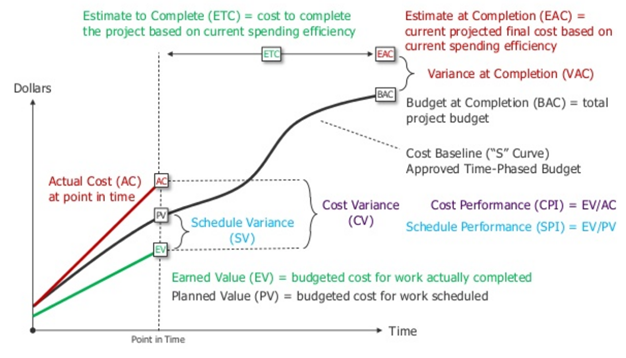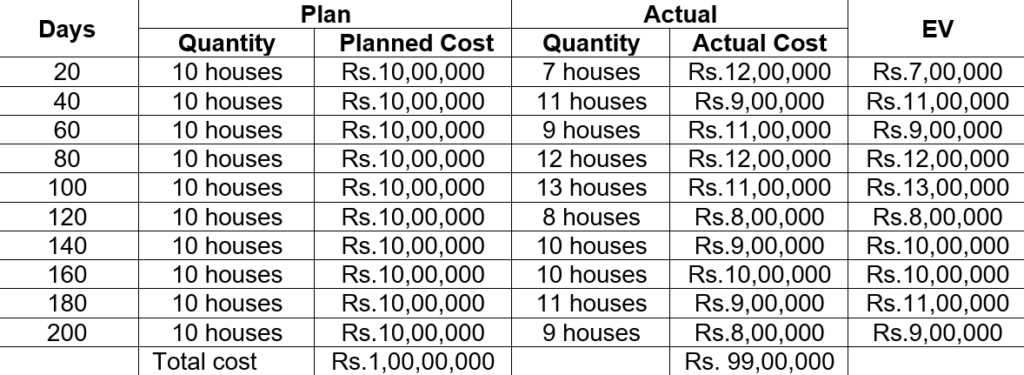Earned Value Management (EVM) is a systematic project management process that helps managers to measure project performance. Earned Value Management is a technique that is used to track the performance of a project against the project baseline and is very effective assuming the project baseline has been accurately calculated. Here we will discuss the benefits of using Earned Value Management. We also briefly explain earned value analysis with an example.

Why use Earned Value Management?
- Earned Value Management provides a reliable centralized data source.
- Earned Value Management provides real-time tracking of progress.
- Since in Earned Value Management real-time tracking is possible, it gives managers early warning of project off-tracking.
- Integration of all authorized work using a product-oriented work breakdown structure. This can leads to the coordination of contributions from each department and ensures that work, schedule, and cost are properly integrated.
- Managing issues highlighted as areas of concern helps management to focus on the most critical issues. This clearly defined process reduces the risk that something will be overlooked.
- Earned Value Management monitors budget, schedule, and scope, accurately measuring performance and predicting the future of the project’s performance.
- Earned Value Management is time-phased, therefore the more regularly that it is checked and calculated, the more likely a successful outcome for your project.
Explanation of Earned value analysis with an example
Now let’s go deep into Earned Value Management. We will explain the entire concept through examples. First, we will have a look at the background of our example. Let’s say we have a one project assignment where there is a requirement for a project team to build 100 low-cost houses for the Indian Government. So contractors bided for the project and one of them got the bid for Rs. 2,00,000 /per house. So the contact is for Rs. 2,00,00,000. The contract specifies that the project should be completed in 200 days. The estimated cost of completion of the project will be Rs. 1,00,000 per house(project cost baseline). The estimated cost of completion does not have anything to do with the contract value. The project cost baseline is a function of what a project manager and team are estimating the amount of money that needs to be spent on that project. How much you are getting for the project is a separate conversation and Earned Value Management has nothing to do with it.

Let’s take an interval of 20 days. The project manager and his team planned for building 10 houses in 20 days at the expense of Rs. 10,00,000 for 20 days. So each 20-day interval will cost the company Rs. 10,00,000, hence total project cost adding to Rs.1,00,00,000. This is plotted in the chart with the vertical axis having the cumulative cost and the horizontal axis having days.
The work didn’t go according to the plan. Actual quantity and planned quantity varied from the planned quantity and planned cost (Check the table).
The earned value we can is a combination of actual quantity and planned cost. It’s a way of saying if everything would have gone as per plan ideally, how much I should have spent doing the same job. From the table, in the 1st 20-day interval only 7 houses were built. So Earned Value is the cost of building those 7 houses according to the plan (cost of building 1 house is Rs. 1,00,000. So it will cost Rs. 7,00,000 to build that many houses.). Earned value can also be defined as the actual value of work completed (worth of work completed against our budget).
